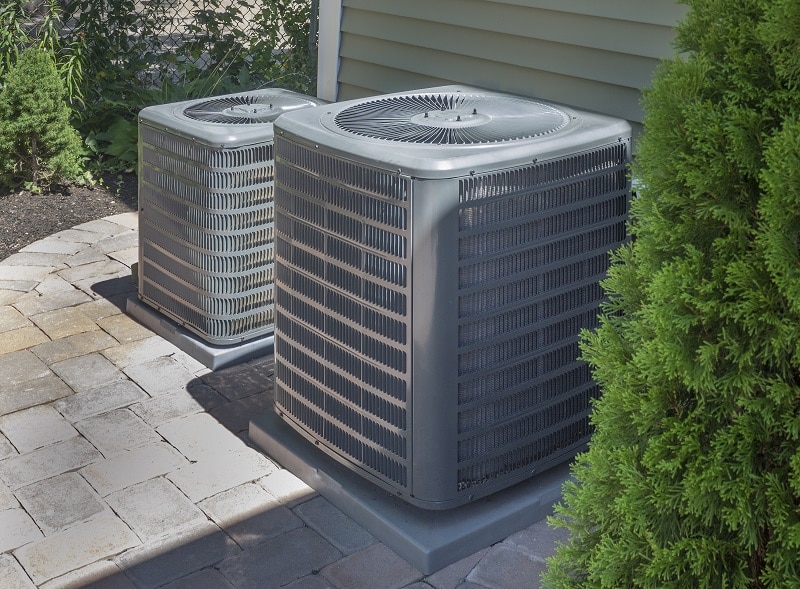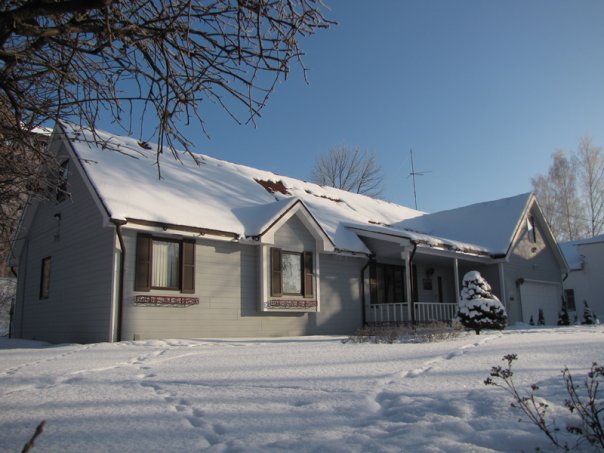Average Lifespan of an AC Unit
The technology behind air conditioning systems gets better and better through the years, but even the best and most expensive units can’t last forever.
Air conditioners are a complex appliance, after all. There are a lot of factors that can influence their performance and longevity.
What is the Average Lifespan of an Air Conditioner?
Are you planning to replace your old air conditioner or, perhaps, thinking about getting new AC units online? Then you’re probably also wondering how long your new AC unit is going to last.
According to the US Department of Energy, air conditioning units have an average lifespan of 15 to 20 years. However, it’s not unusual for a well-made and well-maintained unit to outlast its life expectancy.
The following factors can affect how long your AC unit lasts:
Size
When choosing an air conditioner, especially window-type AC units, your primary consideration must be the size of your space.
It is critical to have a properly sized AC for your home. Choosing a less powerful model to cool a greater area compels the unit to work harder to cool the room. On the other hand, a system that is larger than necessary, will turn on and off too quickly. This results in shorter cycles, which causes more wear and tear on the AC’s components.
Frequency of Use
When talking about an air conditioner’s lifespan, usage matters most of all. The more you use the system, the more wear and tear it endures.
It’s not necessarily heavy usage that dooms a cooling system, but if your air conditioners are working without rest for months on end – and without proper maintenanceMaintenance is the routine care, inspection, and repair of a... More, it is going to be only a matter of time before system fatigue kicks in.
Location
Where you reside can also have a huge impact on how long your equipment lasts. An air conditioner in a hot and humid environment will operate nearly 24 hours a day while a unit installed in an area with a much cooler climate won’t get used as much.
The AC system that runs round-the-clock experiences persistent wear and strain. Even with good maintenanceMaintenance is the routine care, inspection, and repair of a... More and regular tune-ups, the equipment is likely to fail sooner than those that are only used for one season a year. Furthermore, living near salt water also shortens the life of condensing units.
How You Can Make Your AC Unit Last Longer
A new air conditioner is a substantial financial investment, so – naturally – you’ll want to get the most use out of it as possible.
Numerous elements come into play when it comes to how long your air conditioner will survive, starting from the day it is installed. Whether your AC unit lasts its average lifespan of 15 years or extends to 30 years depends on how you use and take care of it.
The suggestions listed below will help you increase your air conditioner’s life expectancy:
1. Make sure your unit is properly installed.
First of all, make sure that your air conditioner is installed and set up correctly. There should be adequate space around the air conditioner for performing repairs and routine maintenanceMaintenance is the routine care, inspection, and repair of a... More.
Also, avoid placing your AC in direct sunlight. If you have a split air conditioner, make sure the outdoor unit isn’t facing the sun. You’d have to put it in a shady location. If there is foliage in the area, make sure it is at least 24 inches away so as not to impede airflow.
2. Change the filters often.
Air filters are among the most critical parts of any air conditioning system. These filters not only help keep your home’s air clean by removing airborne contaminants (pet dander, dust, pollens, and other allergens), but also prevent pollutants from entering the unit and affecting its cooling efficiency.
If an AC unit’s air filters are not replaced routinely, mold can even begin to form in the unit and airducts.
Changing your AC’s air filters regularly is one of the simplest steps you can take to prolong its lifespan. Ideally, you should replace the filters every three months, but more often (maybe once a month) during months of heavy use like in the summertime.
3. Minimize Your AC system’s workload.
Your AC’s life span shortens if it’s constantly running at full blast, so you have to find ways to reduce the load on your system. You can start by using blinds and drapes in sunny areas to reduce the heat and lessen the stress on your air conditioner.
Also, avoid tweaking the thermostatA thermostat is a device that monitors and regulates tempera... More too often. Use the eco-setting if your system has one or invest in a smart thermostatA thermostat is a device that monitors and regulates tempera... More and pre-program the temperature settings based on your daily routine. The less work your air conditioner has to do, the less damage it will have to sustain.
4. Improve the air quality in your home.
Dust, stale air, and other air quality issues have some effect on the lifespan of an air conditioning system. If your air conditioner can’t seem to clear the air or reduce the humidityHumidity is the amount of moisture or water vapor present in... More to a comfortable level on its own, you may want to consider investing in whole-home dehumidifiers or air-purifiers.
These HVAC add-ons can get rid of countless indoor air qualityIndoor air quality (IAQ) refers to the condition of the air ... More issues and at the same time give your air conditioner a boost.
5. Schedule a regular professional HVAC checkup and maintenance.
If professional HVAC maintenanceMaintenance is the routine care, inspection, and repair of a... More isn’t part of your annual HVAC care checklist yet, you should add it now.
The last thing you want to experience is a major AC unit leak and subsequent water damage.
Routine tune-ups are essential for keeping your AC system running at peak efficiency and in identifying minor issues before they develop into bigger, more expensive problems. When all its parts are in optimal working condition, your air conditioner won’t have to work harder than necessary to keep your home cool.
Following these tips will help extend the life of your air conditioner and save money on energy bills. However, there are times when even routine maintenanceMaintenance is the routine care, inspection, and repair of a... More and repairs won’t be enough to keep your unit functioning as efficiently as it should. When this happens, it’s best to seek the advice of an HVAC professional.
Is It Time to Buy A New Air Conditioner?
One of the most difficult decisions you’ll face as a homeowner is whether or not to replace your old air conditioner. While buying a new air conditioner won’t come cheap, keeping an old one in poor working order would be even more costly.
It would be wiser and more cost-efficient to replace your air conditioner if:
- You’ve had your AC for more than ten years.
- Your energy bills have skyrocketed.
- Your unit frequently breaks down.
- The repairs are becoming expensive.
- Your AC still uses R-22 Freon.
A new air conditioner does not have to catch you (or your finances) by surprise. If you keep a close eye on the performance and operation of your unit, you’ll be able to anticipate when it’s almost at the end of its lifespan and prepare yourself for an AC replacement.













